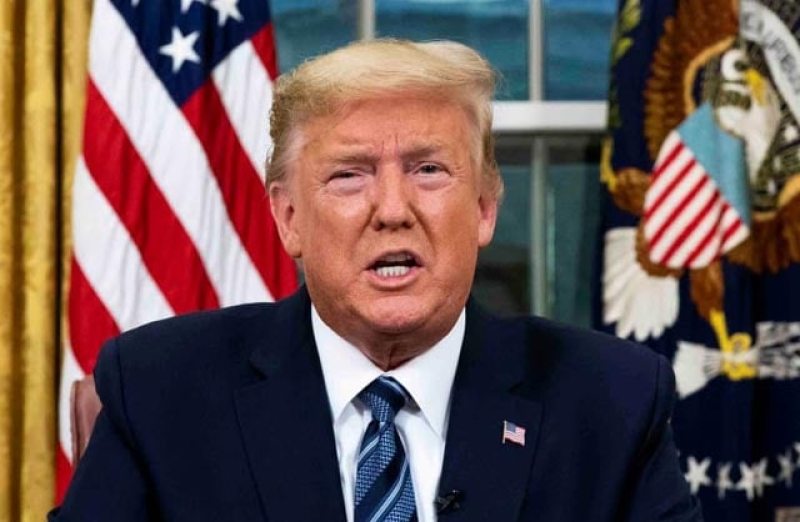- Expedite Reforms to Hold Elections in December |
- Power Supply from Adani Plant to Bangladesh Comes to a Halt |
- ‘March for Gaza’ in Dhaka Demands End to Israeli Offensive in Palestine |
- Kishoreganj’s ‘Pagla Mosque’ collects 28 sacks of donation |
- Bangladesh Sent Garments to 36 Nations via India |
US Will Not Allow Nuclear Weapons in Iran: Trump

U.S. President Donald Trump reaffirmed his administration's hardline stance on Iran’s nuclear ambitions, declaring that the United States will not permit Iran to possess nuclear weapons.
Speaking to reporters aboard Air Force One ahead of renewed negotiations with Tehran, Trump said, “I want them not to have a nuclear weapon. I want Iran to be a wonderful, great, happy country—but they can’t have a nuclear weapon. And we’re negotiating with them on Saturday. We have a big meeting coming up.”
The latest round of U.S.-Iran discussions is set to take place in Oman on April 12, focusing on resolving tensions surrounding Iran’s nuclear program. Iranian Foreign Minister Abbas Araghchi and U.S. Special Presidential Envoy Steve Witkoff will serve as the lead negotiators.
While Iran maintains there will be no direct talks, with Oman mediating the negotiations, the White House has hinted the meeting could amount to de facto direct engagement.
Tehran continues to advocate for the restoration of the Joint Comprehensive Plan of Action (JCPOA), the 2015 nuclear deal, with new clauses that would impose penalties on any party that unilaterally exits the agreement in the future.
The U.S., however, is demanding more sweeping concessions. Washington is calling for a complete halt to any military components of Iran’s nuclear program, full dismantlement of its nuclear infrastructure, an end to Tehran’s regional military support for allied groups, and significant limitations on its ballistic missile development.
Iran, in turn, rejects attempts to curtail its defense and foreign policy, asserting its sovereign right to develop a civilian nuclear program.
As tensions remain high, the outcome of Saturday’s talks could prove pivotal in shaping the future of U.S.-Iran relations and the broader security landscape in the Middle East.

